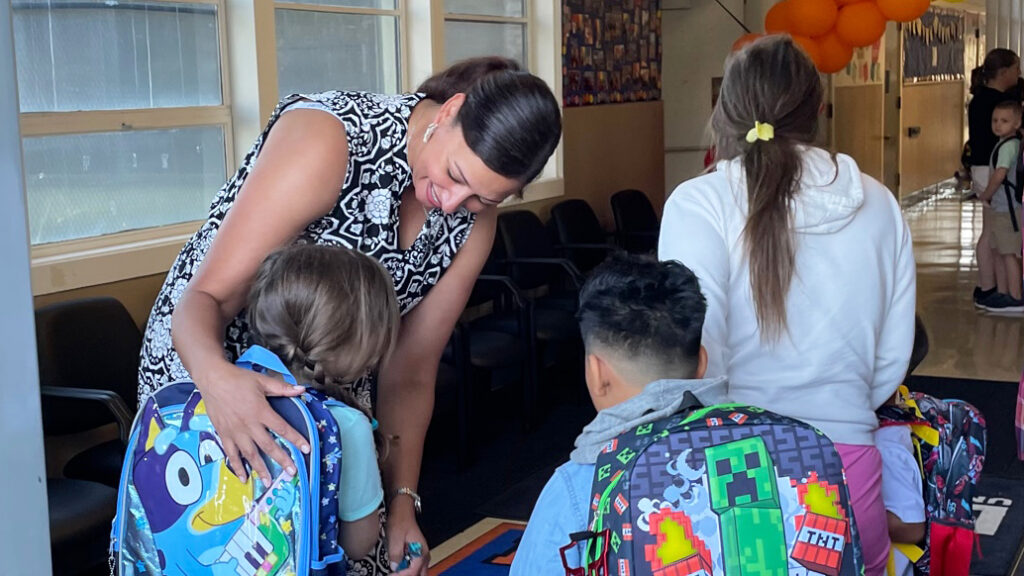Jan Resseger is a social justice warrior who worked for the United Church of Christ. In retirement, she writes lucid, carefully researched articles about social policy and its effect on the nation’s most vulnerable people.
I should post everything she writes but I miss some. Here is Jan on Trump’s Big Ugly Bill and how it will hurt the neediest children and families.
This article about Trump’s assault on civil rights law was posted by the National Education policy Center.
She writes:
On Wednesday, April 23rd, President Donald Trump released an executive order banning the use of disparate impact when the Department of Education’s Office for Civil Rights investigates disparities in school discipline under the Civil Rights Act of 1964.
Under the concept of disparate impact, officials in the Office for Civil Rights have been able to document discrimination by measuring the effects of a school’s or school district’s discipline practice on the mass of the school’s or school district’s students even when there is no proof that staff members intended to punish some students mores severely due their race or ethnicity or sexual orientation. Staff at the Brookings-Brown Center on Education Policy, Rachel Perera and Jon Valant, define “disparate impact”: “Disparate impact is the idea that school discipline policies that disproportionately harm students of color may constitute illegal racial discrimination even if those policies are… applied in an evenhanded way.”
Academic researchers have been examining unjust school discipline policies for decades. In 2014, the Civil Rights Project at UCLA described groundbreaking work to define “the school-to-prison pipeline” as a metaphor for disparate impact in discipline policies across many U.S. public schools. Researchers documented differences in the kind of punishment imposed on students based on their race or ethicity or disability: “The Civil Rights Project has been working on the school discipline issues since 1999, under the leadership of Daniel Losen. Research from CRP’s Center for Civil Rights Remedies… finds that far too many districts suspend students in droves, while many others have little or no racial disparities and adhere to the common sense philosophy that suspensions, expulsions and arrests are strictly measures of last resort.”
In her new book, Original Sins, sociologist Eve Ewing describes how a punitive, prison-like, school culture, including systemic disparate impact, can infuse a school’s treatment of different groups of students because individual teachers and staff just get caught in the system in which they operate every day: “As sociologist Carla Shedd has written, the ‘routines and rituals’ created by carceral logic—everything from interacting with police officers in schools to strict uniform codes of conduct—become integral to the way a school functions, and can ultimately undermine the ostensibly educational purpose of the school building by making students feel unsafe… From within the space of the school, such regimes of discipline can become so routine that they escape notice by those who are accustomed to them.” (Original Sins, pp, 156-157)
For decades, disparate impact in school discipline has been at the heart of many of the complaints filed and consent decrees established between school districts and the U.S. Department of Education’s Office for Civil Rights. But on April 23, as the NY Times’ Erica Green reports, “President Trump has ordered federal agencies to abandon the use of a longstanding legal tool used to root out discrimination against minorities, a move that could defang the nation’s bedrock civil rights law. In an expansive executive order, Mr. Trump directed the federal government to curtail the use of ‘disparate-impact liability,’ a core tenet used for decades to enforce the Civil Rights Act of 1964 by determining whether policies disproportionately disadvantage certain groups… ‘This order aims to destroy the foundation of civil rights protections in this country, and it will have a devastating effect on equity for Black people and other communities of color,’ said Dariely Rodriguez, the acting co-chief counsel at the Lawyers Committee For Civil Rights Under Law….”
Green explains: “The disparate-impact test has been crucial to enforcing key portions of the landmark Civil Rights Act, which prohibits recipients of federal funding from discriminating based on race, color or national origin. For decades, it has been relied upon by the government and attorneys to root out discrimination in areas of employment, housing, policing, education and more. Civil rights prosecutors say the disparate-impact test is one of their most important tools for uncovering discrimination because it shows how a seemingly neutral policy or law has different outcomes for different demographic groups, revealing inequities… Mr. Trump’s order resurrects a last-ditch effort made in the final days of his first term to repeal disparate-impact regulations through a formal rule-making process… Now the Justice Department’s embattled civil rights division has halted the use of disparate-impact investigations altogether, officials said.”
It is important to note that the Trump administration has not attempted, so far, to change the law itself, but instead to amend the federal guidance and rules that the Department of Education’s Office for Civil Rights has used in its investigations. The Washington Post‘s Kim Bellware explains: “Trump’s order directs federal agencies to ‘deprioritize enforcement’ of statutes and regulations that include disparate-impact liability, which has long enabled courts to stop policies and practices that unfairly exclude people on the basis of protected characteristics such as race, gender, and disability.”
When disparate impact is cited, the disparities are regularly documented with large data studies. For example, back in 2008, in his powerful book, So Much Reform: So Little Change, the University of Chicago’s Charles Payne described national data indicating the widespread disparate impact of discriminatory school discipline: “According to data collected by the U.S. Department of Education for the 2004-2005 school year, African American students nationally are suspended or expelled at nearly three times the rate of white students. In Minnesota, Black students are six times as likely to be suspended as whites, but that seems downright friendly compared to New Jersey, where they are almost 60 times more likely to be expelled. In 21 states, the percentage of Black suspensions is more than double their percentage in the student body. These disproportions affect middle-class as well as working-class Black students and there is no reason to believe that they can be reduced to actual differences in student behavior. At least some of the discrepancy seems to be about teachers interpreting similar behaviors differently when they come from students of different races… We shouldn’t be surprised to learn that African American students perceive school climate less favorably than white students or staff.” (So Much Reform: So Little Change, p. 112)
In 2014, in its own “Dear Colleague Letter,” the Obama administration announced a formal policy affirming the use of “disparate impact” as evidence in school discrimination cases. Here is constitutional law professor, Derek W. Black, in a 2016 book, Ending Zero Tolerance: The Crisis of Absolute School Discipline: “On January 8, 2014, the Departments of Education and Justice went beyond individual enforcement actions and formally announced their policy on school discipline moving forward… The policy guidance distinguished between disparate treatment (treating minority students and whites differently in terms of discipline) and disparate impact (facially neutral policies that result in racially disparate outcomes). It came as no surprise that schools cannot suspend an African American student for fighting and only send his white classmate to study hall. But the (formal policy) guidance on racial disparities was significant.” (Ending Zero Tolerance, p. 84)
In 2018, the first Trump administration tried to end the use of disparate impact as a way to measure civil rights violations by ending Obama’s rules and guidance. Perera and Valant reported: “When the Trump administration rescinded the Obama Dear Colleague Letter in 2018… it dropped any reference to disparate impact theory and defined much narrower conditions (for) OCR investigations.”
Perera and Valant add that the Biden administration did, in another Dear Colleague Letter, try to restore Obam’s rules and guidance, but they write that Biden administration’s “letter lacks a definition of illegal discrimination, information about how the federal government will enforce civil rights law, guidance for school districts on mandated data collection, or suggested practices and policies to prevent discrimination.”
Nevertheless, despite the weak Biden policy statement, President Biden’s Department of Education continued to investigate and enforce civil rights violations in school discipline based on disparate treatment.
Here we are now in 2025 with President Trump’s new executive order that attempts to cancel the use of disparate impact in civil rights enforcement altogether. Fortunately Trump’s new executive order will likely face lawsuits. Erica Green explains why: “Mr. Trump’s executive order, which is likely to face legal challenges, falsely claimed that the disparate-impact test was ‘unlawful’ and violated the Constitution. In fact, the measure was codified by Congress in 1991, upheld by the Supreme Court as recently as 2015 as a tool in the work of protecting civil rights, and cited in a December 2024 dissent by Justice Samuel A. Alito Jr.”
In the meantime in late March 2025, a month before Trump’s new executive order banning the use of disparate treatment in civil rights investigations, Trump’s Office for Civil Rights, in a move demonstrating Trump’s view of civil rights enforcement using “disparate impact,” dismissed a consent degree established in the Biden years to address discriminatory school discipline. The Washington Post‘s Laura Meckler describes what happened in Rapid City, South Dakota: “For years, Native American students in the Rapid City, South Dakota, school district were more likely to be disciplined and less likely to enroll in advanced courses than their White peers. In 2010, the Education Department opened an investigation to see if racial discrimination was to blame… The original investigation found that Native American students in the district were twice as likely as White students to be referred for discipline, more than four times as likely to be suspended and more than five times as likely to be referred to law enforcement officials.”
Meckler continues: “The effort lingered until last year, when investigators came to a voluntary agreement with the district. In a 28-page letter signed last May, the federal government outlined its concerns that Native American and White students had been treated differently. The school district, which is the second-largest in South Dakota, agreed to take a number of steps, including staff trainings, better communication with parents and ongoing monitoring.”
At the end of March 2025, reports Meckler, “the Trump administration told the Rapid City Area School District it was terminating the agreement.” But school district personnel in Rapid City did not consider the termination of the consent agreement to be a victory: “The Trump administration letter, sent March 27, came as a shock to the Rapid City Area School District, which did not ask for a change, a district spokeswoman said. She said the district plans to continue to abide by its terms, even though federal officials will not be monitoring to see if it does so. ‘While political priorities may shift, our core educational values remain steadfast,’ Cory Strasser, the district’s acting superintendent said in a statement. ‘Our mission remains to provide a safe, positive, and nondiscriminatory learning environment where all students can achieve their full potential.’ “





